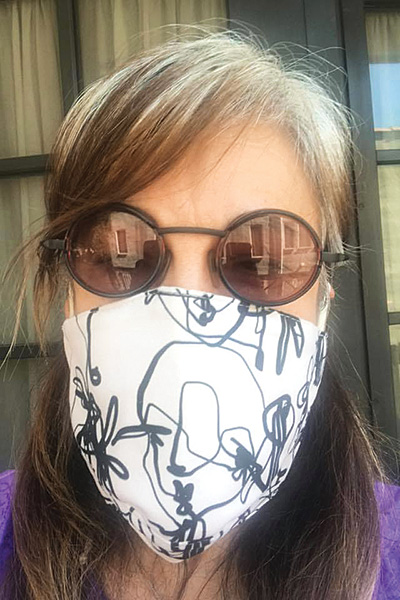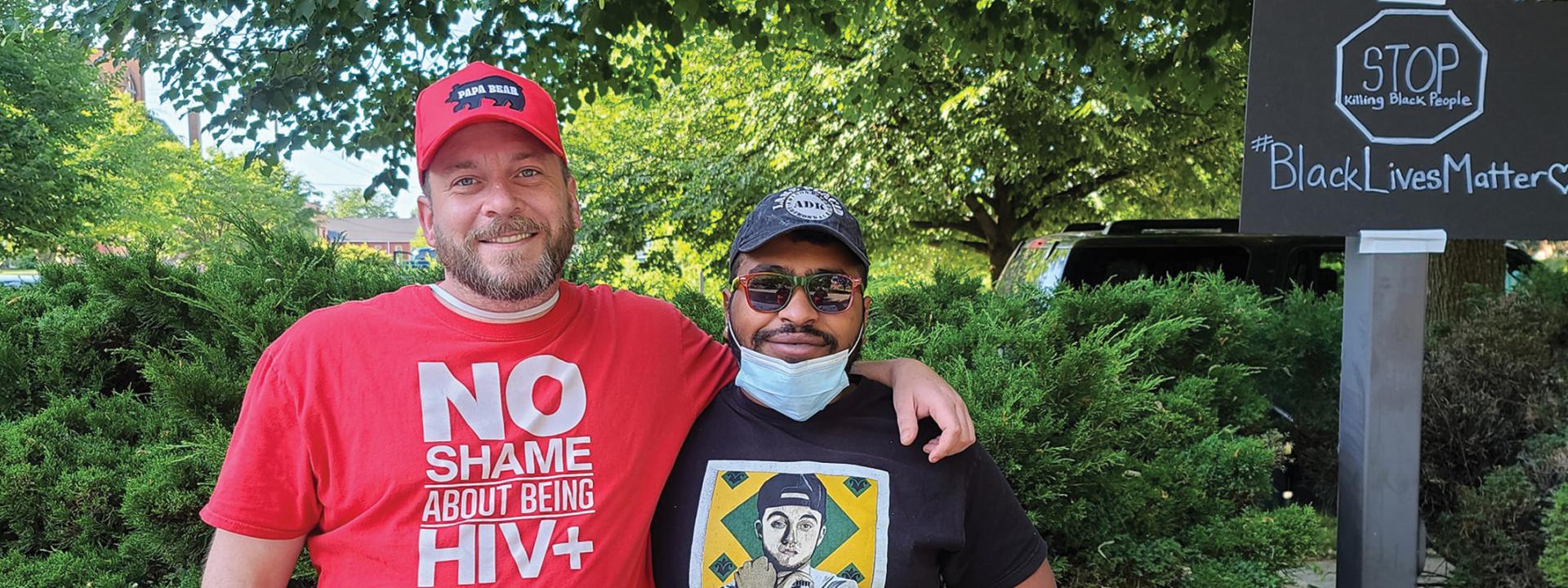What does living with HIV today look like for you? That’s the question we asked our followers on Facebook, Instagram, and Twitter. They served up some honest feelings and experiences
“It’s been 10 years since I’ve been diagnosed. For the most part that one pill a day takes care of everything. Between my day job and photography, I try to keep myself busy, overwhelm myself with too many projects, try to bike more, work on keeping healthy, listen to music. Anxiety is what’s keeping me on my toes, not the virus. I’m getting older and seeing changes that I question if they would be the same if I didn’t have this thing hiding in my body. What gives me peace is photography, this is truly the only thing that lets me forget about the reality, a way to escape. Unfortunately, with the pandemic I’ve been mostly stuck at home, and the live local performances that I was shooting have all been cancelled and the venues shut down. So far, I’ve not been able to find new activity to help me find peace.”
—Peter Serocki
“In a perfect world as a heterosexual couple honoring our vows, for better or worse, in sickness and health, we would be accepted and acknowledged for weathering the storm of 36 years of marriage and still standing together.
Sadly, we are not!
We are the exception and only marginally accepted. The unwritten rule is that after diagnosis, the split up is the obvious next step with a couple.
It takes its toll. Choosing not to always explain why we are still together and knowing it’s falling on already made up minds seems pointless after a while.
We seem to be the proverbial third wheel when out with our circle of friends, the only couple in a sea of single men and women.
Not many couples are actually active together in the HIV community. We feel like we are on the outside looking in for that connection. Life as a married couple living with HIV is a challenge. We do the best we can do.”
—Eunice and Kalvin Marshall
“As a 30-year survivor and having spent more than 25 of those years living openly with my positive status, I’ve settled into a ‘quieter period.’ Gone are the requests for educational presentations that I once did for various groups and organizations, in and around the rural area in which I live. Luckily, for me, I have reaped the benefits of improved treatments for HIV. Lucky, in that I’m still here in 2020, when in 1991, when I tested positive, I was given about five years to live. The trade-off has been chronic kidney disease (stage III), fat redistribution, facial wasting, and such. Thank goodness for Sculptra, that not only works as a filler, but as a self-esteem builder. So, thriving? Maybe. ‘Maintaining’ would be a better description, as the mental aspect of it plays a huge part now as a long-term survivor.”
— Harold R. Scottie Scott

“Living with HIV for 35-plus years and now living with my 90-year-old mother as her caregiver at her assisted care is the most fear and stress I’ve ever had. My meds are delivered. I am now 66 years old, receiving my retirement which is helpful but not much. I’m at high risk living in a high-risk zone, the assisted care home with 80–90-year-olds who often forget their masks and won’t stay in their rooms. Normally, they would be out in the community, having art classes and outings and entertainment. Now I am all that for my mom—giving her medication, exercise, and going for walks outside. She is in a wheelchair, so I’m pushing it. But I am grateful. She has three meals a day and help with her bathroom needs. This is an opportunity to be of maximum service to my mom for however long she’s got. Keeping her safe and Iight-hearted helps me, too.”
—Sherri Lewis
“I am thriving with HIV because I chose to take a positive diagnosis and live a positive life. I have a partner who is HIV-negative who has stood by me for the last five years. We thrive by telling our story openly to help others see that living with HIV is not the end. Be the love you want to see.”
—Eric Grant
“I stay home, watch Netflix. I didn’t survive this far to be taken out by another virus.”
—Derek Canas
“I’m about to lose my insurance and nobody has real answers as to how to get your HIV medication, and insurance has been a hassle too—prior authorizations for meds and harassment from insurers, pharmacies. HIV organizations who have no clear answer or a system to help with medications—it’s stressful. It should not be this way. There is no cure, and we need the medication. I feel so lost sometimes because of this uncertainty. It never stops.”
—Luis Collado
You Don’t Refuse to Breathe
I’m looking at this new plague and I’m thinking
about David Wojnarowicz and how in the last plague
it mattered so much to be queer and the pathos
of your family hating you and the pathos
that the government was always be happy to let you die
but how in this plague though the marginalized
will surely suffer the most it won’t be
a gay thing and it won’t be about my identity
and whoever dies might not be your secret lover but
your grandpa or great-grandmother or that snotty kid
who always looked at you funny when you walked
down the street yeah it got him too though
it wasn’t supposed to but it did and it wasn’t
supposed to bring people together but people
are trying so hard on video conference crappy Zoom
or whatever but that’s not being together that’s a more
exquisite sense of your own isolation and how you can’t
kiss boys on the street like you did thirty years ago
and didn’t that feel good although people
were still dying and yeah they’re going to die again and
soon and I think about the Black Death and how the one
who was singing in the morning would manifest
foul pustules in the afternoon and be dead by nightfall
but no novel coronavirus doesn’t work that way
you could kill twenty people before you have a clue
that something might be wrong and yeah
in that way it’s like HIV but there’s no part of this
quarantine this holding back that could in any way
be related to fun it’s like Frank O’Hara said
you don’t refuse to breathe do you
—Merrill Cole @merrillcole


